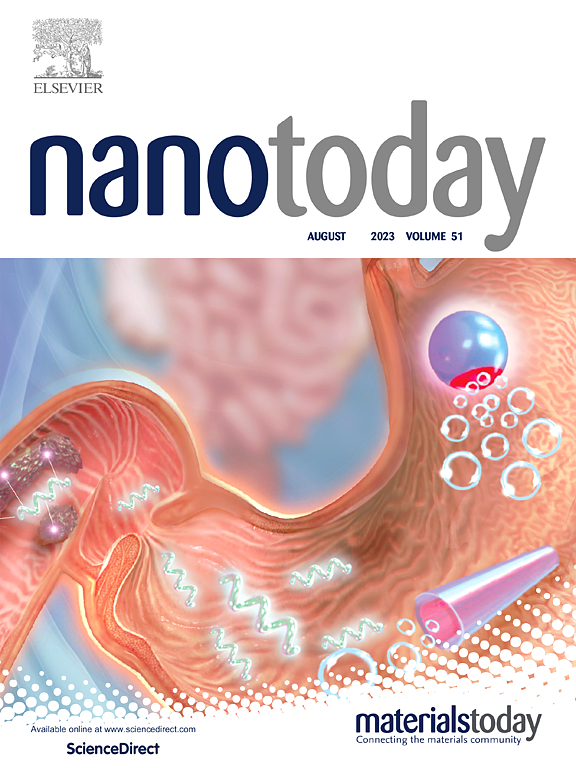Intelligent fiber-based sensors for continuous monitoring of levodopa concentration and real-time Parkinson management
IF 13.2
1区 材料科学
Q1 CHEMISTRY, MULTIDISCIPLINARY
引用次数: 0
Abstract
Current Parkinson's disease (PD) management often fails to account for the complex relationship between fluctuating drug levels and symptom variability. Here, fiber-based biochemical and biomechanical sensors have been engineered for continuous monitoring of levodopa levels and motor symptoms. These biochemical sensors exhibit remarkable selectivity and sensitivity towards levodopa, with a linear detection range spanning from 1 µM to 250 µM and a detection limit as low as 0.13 µM. This high-performance detection capability allows for real-time, non-invasive therapeutic drug monitoring, offering insights into disease progression and patient response. Furthermore, triboelectric nanogenerator sensors are integrated to track subtle motor symptoms, such as tremors, complementing the biochemical data. This dual approach provides a comprehensive assessment of PD, enabling personalized treatment strategies by continuously evaluating both drug levels and symptom fluctuations. The combination of these technologies represents a significant advancement in PD management, offering real-time insights that inform pharmacotherapy adjustments and clinical decisions.
求助全文
约1分钟内获得全文
求助全文
来源期刊

Nano Today
工程技术-材料科学:综合
CiteScore
21.50
自引率
3.40%
发文量
305
审稿时长
40 days
期刊介绍:
Nano Today is a journal dedicated to publishing influential and innovative work in the field of nanoscience and technology. It covers a wide range of subject areas including biomaterials, materials chemistry, materials science, chemistry, bioengineering, biochemistry, genetics and molecular biology, engineering, and nanotechnology. The journal considers articles that inform readers about the latest research, breakthroughs, and topical issues in these fields. It provides comprehensive coverage through a mixture of peer-reviewed articles, research news, and information on key developments. Nano Today is abstracted and indexed in Science Citation Index, Ei Compendex, Embase, Scopus, and INSPEC.
 求助内容:
求助内容: 应助结果提醒方式:
应助结果提醒方式:


